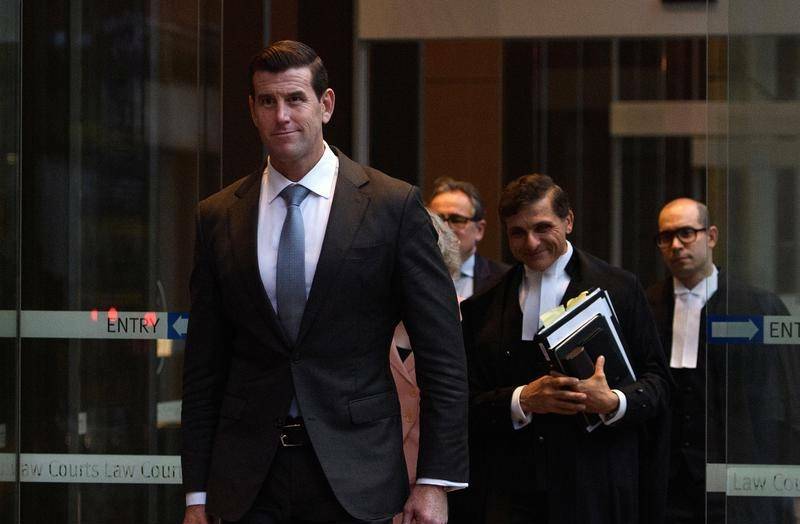
I was also impressed with the letter (Mercury, June 6) from Susan Barnes, "Onya Susan" I thought at the time, but I also agree with the response letter from Ian Young (June 10), about freedom of speech. But surely there has to be a limit to what you can say or not say. Common sense would make a good guideline, but not all people have common sense.
Subscribe now for unlimited access.
$0/
(min cost $0)
or signup to continue reading
As for that SAS soldier in the headlines just of late, he has done all this publicity to himself. I personally think of him as a little pathetic creature in a big man's body, and I feel comfortable saying it. As for Adrian Devlin's views, "Let them rip mate, We all get a good laugh out of your comments".
John Pronk, Wollongong
Law is complex
In recent times it is becoming very clear that the law applied to what seemingly are straightforward situations in the minds of some people, are complex. Richard Burnett (Mercury, June 12) and previously Adrian Devlin, have simplified a set of circumstances, applied their moral and world view framework to criticise the outcome and reasoning of Justice Besanko of the Federal Court in the defamation prosecution of Ben Roberts-Smith Smith.
The judgment of Justice Besanko is 736 pages. If Mr Burnett and Mr Devlin choose to comment on the outcome, they should spend the considerable time reading the judgment, rather than rely on media accounts.
BRS may seek to appeal the decision, but that may not be automatic. Any notion of 'mitigating circumstances' is not legally straightforward. As citizens of Australia, we expect military personnel to abide strictly by the rules of engagement, Human Rights law and the Geneva Convention.
Peter Corkish, Wollongong
Rules of war
Adrian Devlin and Richard Burnett (Mercury, June 6, 12) wrote about the Roberts-Smith case objecting to raising and pursuing Australian war crimes. I strongly reject their unstated assumption that in war rules and morality should be forgotten. That is Hitler's and Putin's approach.
Christian doctrine lays down that a "just war" must have a just goal, waged with just and not excessive means and reach a just conclusion. Since 1945 I judge only four wars mostly met such criteria; India's East Pakistan invasion, Vietnamese ousting Pol Pot, Tanzanians ousting Idi Amin and Britain's Falkland war. Afghanistan did not!
Killing prisoners and murder of civilians in Afghanistan are clearly unjust. A civilised country must ensure its forces do not do it. To condemn efforts to raise and pursue this where an Australian court, at Roberts-Smith's initiative, declared war crimes probably took place, is both immoral and against Australia's interests.
David Goss, Woonona
Have something to say? Write us a letter below:

